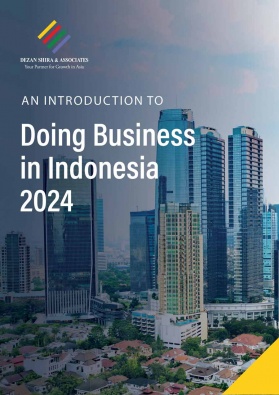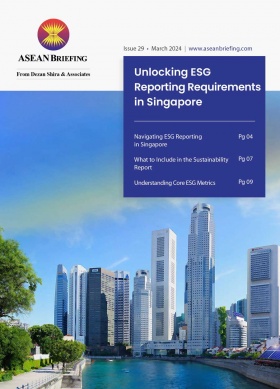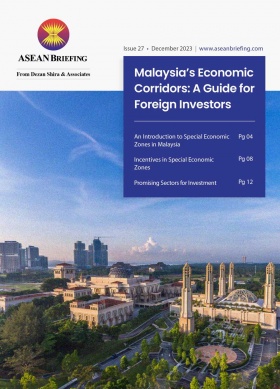Vietnam’s Updated Telecommunications Law Takes Effect July 1
Since the first revision of the Telecommunications Law in 2009, Vietnam has worked to modernize its telecommunications system to reflect the impact of digital advances better. The new Telecommunications Law will come into force on 1 July 2024, but certain regulations regarding data centers, cloud computing, and OTT communications will come into effect on 1 January 2025. This new law will repeal and replace the Law Telecommunications 2009 (current legislation).
The Telecommunications Law is a document that has a broad scope of impact, covering various fields of telecommunications activities, starting from telecommunications infrastructure, and telecommunications services, to state telecommunications administration.
Several new regulations in this law require detailed instructions to ensure consistent implementation, such as forms of telecommunications licensing (individual licensing, group licensing), forms of registration and notification of telecommunications service operations, managing SIM cards and accounts, managing customer information, and providing cross-border telecommunications services.Expanding the scope of application of the new law
The scope of the new law will expand to include increased regulation of emerging digital infrastructure and service providers, encompassing data centers, cloud computing, and over-the-top (OTT) communications (collectively referred to as digital services), among other updates.
The new law applies to local organizations, foreign organizations, and individuals directly involved in telecommunications or related activities in Vietnam, including:
- Investing in telecommunications services
- Providing telecommunications services
- Trading telecommunications products
- Constructing telecommunications projects or infrastructure
New telecommunications license
The new law regulates two types of licenses for telecommunications companies, depending on whether the services provided are infrastructure-based:
- Individual Licenses: These licenses are issued based on tailored conditions and obligations specific to each applicant, which may vary among different applicants. They apply to:
- Provision of telecommunications services with accompanying network infrastructure;
- Use of radio frequencies; and
- Operations in specific areas are determined by the government.
- Class Licenses: These licenses are subject to general requirements and obligations that are consistent across different applicants. They cover:
- Standard infrastructure services (i.e., telecommunications services with network infrastructure that do not require individual licensing); and
- Certain non-infrastructure services.
This new licensing framework differs from the current law, which only regulates permits for establishing telecommunications networks and for providing telecommunications services. Licenses issued under the existing legislation will remain valid until they expire.
Additionally, the new law stipulates that certain non-infrastructure services will not fall under the aforementioned licensing regimes. Instead, applicants providing these services may be required to fulfill specific registration or notification obligations. However, the new law does not detail these obligations or specify which non-infrastructure services will be subject to them. It is anticipated that relevant authorities will issue further legislation to clarify these requirements.
Digital services regulation
This new law introduces a separate and distinct regulatory regime for digital services. Additionally, under the new law, digital services (including data centers, cloud computing and OTT communications services) will be considered a type of telecommunications service. Current law does not explicitly regulate such services.
The new law includes the following definitions of digital services:
Data center
A telecommunications facility that includes a building, base stations, cabling systems, computer systems, electrical systems, and auxiliary equipment installed therein for the processing, storage, and management of data from one or more organizations or individuals.
Data service center
Telecommunications services that lease part or all of data center and provide information processing, storage, and retrieval functions to users over a telecommunications network.
Cloud computing
A model that provides the flexibility to deploy, adapt, and manage shared computing resources including networks, servers, storage devices, and applications as needed.
Cloud computing services
Telecommunications services that use a cloud computing model to provide information processing, storage, and retrieval functions to users over a telecommunications network.
Internet telecommunication business
The primary function of telecommunications businesses is to send, transmit, and receive information between individuals or groups over the Internet. This definition encompasses the management of over-the-top (OTT) services such as WhatsApp, Zalo, Viber, and Telegram.
Regarding regulatory systems, data centers, cloud computing, and OTT service providers are not required to obtain a telecommunications license. However, they must comply with registration or notification procedures to offer telecommunications services. Detailed information about these procedures is expected to be published by decree before January 1, 2025, when the new law’s provisions on digital services take effect.
These service providers must adhere to relevant obligations, including:
- Disclosing information regarding service quality;
- Storing and managing user data; and
- Complying with regulations on network security and personal data protection.
The new law does not restrict foreign investment in providing digital services, allowing businesses to be entirely foreign-owned. Additionally, the law permits the provision of such services across national borders, with further guidance expected from relevant authorities.
Wholesale telecommunications
About Us
ASEAN Briefing is produced by Dezan Shira & Associates. The firm assists foreign investors throughout Asia and maintains offices throughout ASEAN, including in Singapore, Hanoi, Ho Chi Minh City, and Da Nang in Vietnam, in addition to Jakarta, in Indonesia. We also have partner firms in Malaysia, the Philippines, and Thailand as well as our practices in China and India. Please contact us at asean@dezshira.com or visit our website at www.dezshira.com.
- Previous Article Insights into Thailand’s Standing in the 2024 Emerging Asia Manufacturing Index
- Next Article La protezione dei dati personali a Singapore








